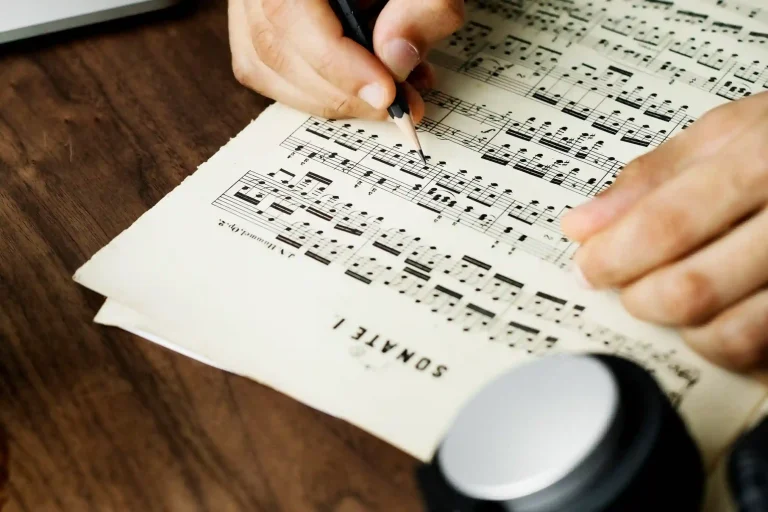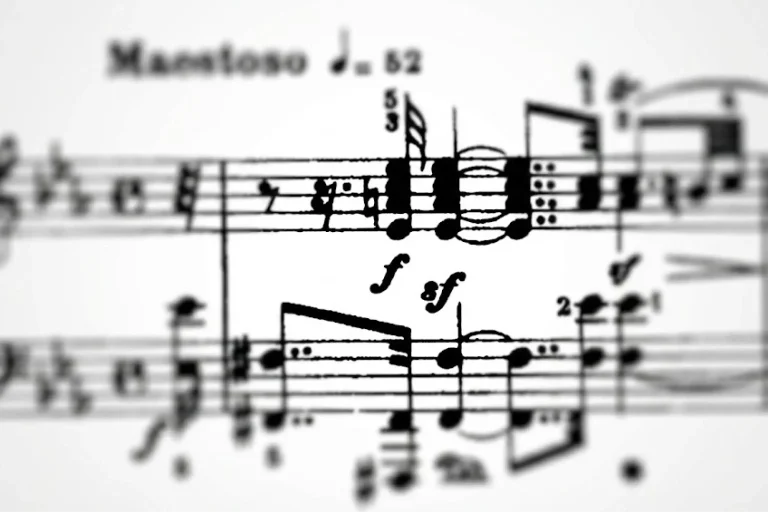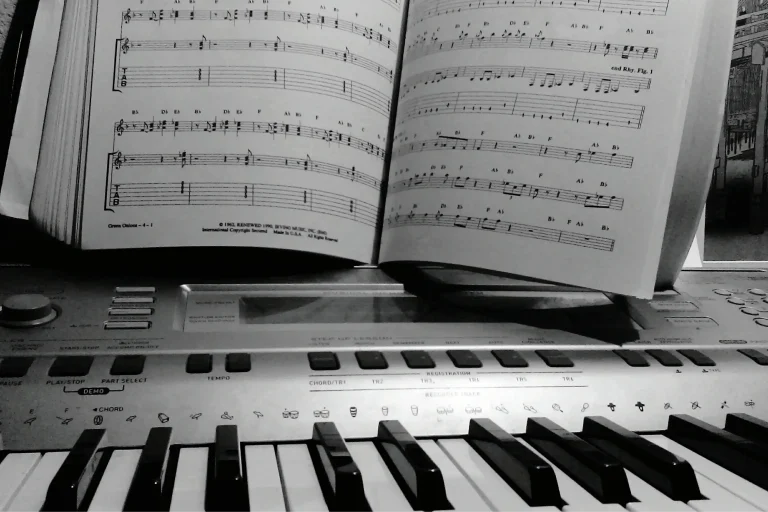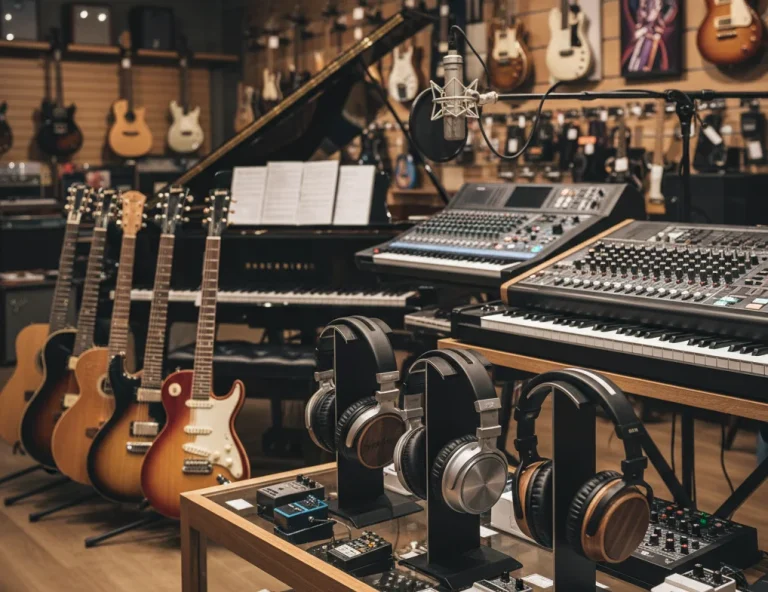All Topics
- Alchemizing Music Concepts for Students
- Artist Spotlight
- artium gift card
- Artium Maestros
- Artium News
- buying guide
- Carnatic Music
- Devotional Music
- Editorials by Ananth Vaidyanathan
- Film Music
- Guitar
- Hindustani Classical Music
- Indian Classical Music
- Indian Folk Music
- Insights
- Instruments
- Karaoke Singing
- Keyboard
- Kids Music
- maestros
- Music Education
- Music for Kids
- Music Industry
- Music Instruments
- Music Legends
- Music Theory
- Music Therapy
- Piano
- piano guide
- Success Stories
- Tamil Film Music
- Telugu Film Music
- Time Theory
- Tools
- Uncategorized
- Vocal Singing
- Vocals
- western classical music
- western music
- Western vocal music
The Complete Guide to Learning Piano for All Skill Levels
The Complete Guide to Learning Piano for All Skill Levels
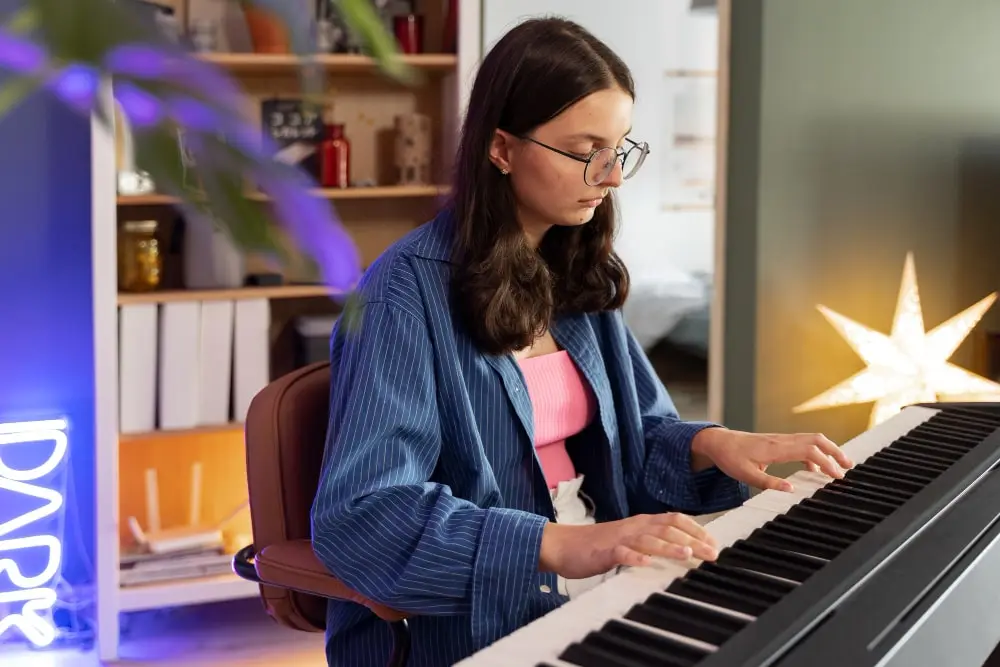
Table of Contents
The Piano is an elegant and sophisticated instrument, and it is widely known as a great starting instrument for learning music. Imagine playing some of the most melodic and beautiful pieces of music with the help of a beautiful Grand Piano, each note creating a deep connection with its listeners. Learning the piano through online piano classes and understanding its versatility and joy is an incredible opportunity to sharpen your skills.
The piano is a great instrument to start learning music. So, to help you along that journey, we at Artium Academy have made this comprehensive piano guide to assist you in learning and mastering everything, from the basics to the most advanced techniques.
But before that…
If you’re really excited to start your journey in music, start with a free trial lesson today!
Why Learn Piano? Benefits for All Ages.
When you learn the piano with the help of online piano lessons, you aren’t just mastering an instrument, rather you are part of an experience like no other. One where your mind, body and soul are enriched. Whether you’re exploring it as a hobby or a lifelong passion, the piano offers a host of benefits that extend beyond music itself.
As you learn more about the piano, the many different aspects of you also grow with experience. Your learning isn’t restricted to only piano, but it extends out to your personal, intellectual and social growth. It can help sharpen your mind by improving your memory and problem-solving skills and helps stimulate your creativity. Most importantly, it will improve your ability to handle multiple tasks at once. From there, your hand-eye coordination will grow to improve. Finger strength and precise motor skills will soon follow as you master the piano.
Music is an art that has the power to heal, whether you listen to it or play something yourself. It is a great way to express yourself with various emotions, allowing you to relax and rewind. As you learn piano online, you can see that playing the piano can be a way for you to connect with your inner self. No matter the tone of the song you play, the emotional release is unlike anything else. Besides all this, another major part of music is the ability to foster connections. From collaborating with large music groups to a band of your own, the connections you build with fellow musicians only grow stronger with your shared love of music.
Understanding Piano Types: Acoustic vs. Digital
Before you buy a piano, understand the differences between the two types – Digital and Acoustic. Both have their benefits and drawbacks. With the help of our piano guide, let’s make it easier for you to make a decision:
- An acoustic piano is a traditional, time-honoured instrument, whereas a digital piano is a modern alternative designed to replicate the sound and feel of an acoustic piano using electronic technology.
- Acoustic pianos produce sound naturally through felt hammers striking strings inside the instrument; however, electric pianos produce sound digitally, often sampled from high-quality acoustic pianos.
- Although the final choice is yours, acoustic pianos are meant for serious learners or professionals, while digital pianos are easier for beginners and casual players.
- Bear in mind that digital pianos are perfect for people working with limited space to keep a full-fledged acoustic piano and they are also cheaper. However, the quality of sound from an acoustic piano is far better than any digital piano.
Choosing the Right Piano for Your Skill Level
It is of utmost importance that you choose the right piano according to your skills. Before joining online piano lessons, it is a crucial step to choose according to your budget, space and skill level. Whether you’re a beginner, an intermediate player, or an advanced musician, there’s a piano out there that’s perfect for you. Here’s a small guide to help you make an informed decision:
- For a beginner, you should go with a digital piano like the Yamaha P-45, Casio Privia PX series, or Roland FP-10. Such pianos are budget-friendly, portable and are filled with useful features like headphone jacks and a built-in metronome.
- For intermediate players who have room to grow, you will require an instrument that matches your growing skills. Either digital pianos with advanced features or entry-level acoustic pianos are right for you in this stage of your learning. Pianos such as the Yamaha Arius YDP series or Roland FP-60X would be perfect for you at this stage.
- Advanced musicians need the best of the best to match their skills and mastery of the piano. Grand pianos or high-end digital pianos are right for you at this stage. Your best picks are the Steinway & Sons, Yamaha CFX grand piano, or Kawai CA series digital pianos.
Getting Started: Essential Tools and Accessories
Having a piano ready to go is just the start. You will need a few more tools and accessories that are necessary for you to properly start your journey. Whether you’re a beginner or an experienced player, these essential accessories can make all the difference in your musical journey.
- Piano bench: A piano bench helps maintain the right height and posture, allowing you to play comfortably for longer sessions.
- Metronome for timings: A metronome is a must-have for developing your sense of timing and rhythm. It helps you stay on beat while playing.
- Headphones allow for focused practice: Headphones are a game-changer, especially if you’re using a digital piano or practising in a shared space. They allow you to focus on your music without distractions and practice without disturbing others.
- Sheet Music: Having access to sheet music can accelerate your learning process. Sheet music teaches you to read and interpret musical notation.
Basic Piano Techniques for Beginners
As you set out on this adventure – how to learn piano, you must first learn a few basic and simple techniques for the piano. These are perfect for beginners as they will help you get a grasp on what a piano is and how it works.
- Pay attention to your seating posture and the positioning of your hands. These are the cornerstones of ensuring that you maintain your health while learning and improving your skills. Proper alignment reduces strain and improves your ability to play smoothly and accurately. While taking online piano classes, ensure that you pay attention to this.
- Mastering the scales is important as well. These are essential exercises that improve your finger strength, coordination, and fluency. They teach you to move seamlessly across the keyboard, develop muscle memory, and understand the patterns of notes.
- Learning the chords and progressions is an important step as well. Chords are considered the building blocks of music, making it a vital skill for every beginner. As you grow comfortable experimenting with combining chords and scales to create simple melodies. With the help of online piano lessons, you can ease the process of learning.
Intermediate Skills: Building on the Basics
Now, as you progress through, your skills will improve drastically. By slowly gaining an understanding and hang of the piano, you can build upon the basics you’ve learned. As you transition from a beginner to an intermediate player, you will encounter new challenges and so to help you succeed, here are a few tips and tricks:
- Try playing some complex chord progressions. As you know, chords are the backbone of playing music. Taking the chance to learn more complicated chords will allow you to grow and improve your skills immensely. Try to understand Seventh Chords first. That would be a good first step.
- Your next step is to understand rhythmic patterns and syncopation. As you learn piano online, you will come to see that rhythm brings life to your music, and mastering complex patterns will make your playing more dynamic. To compliment that, syncopation helps in emphasising the off-beats, creating an unexpected and lively rhythm.
- Once you feel more confident in your abilities, try improvising on your practices. It will help you grow more with your creative abilities, allowing you to create beats and tunes quickly and confidently.
Advanced Techniques: Mastering the Piano
Now that you’ve reached a point where you’re no longer a beginner at playing the piano, it is time for you to learn a few advanced techniques that will help you master the piano fully. Now, your focus is refining, mastering, and expressing yourself through the keys. So, here are a few ways to help you take your skills to the peak:
- Learn how to sight-read. Mastering such an ability is incredibly helpful at an advanced level. Professional sight-reading is a hallmark of advanced pianists, allowing you to play unfamiliar pieces with ease.
- You can then move on to learning and mastering advanced scales and arpeggios. These allow you to expand your tonal range and help ensure smoother transitions and evenness as you play. Dive into styles like the Lydian or Dorian and adapt themit as you play modern pieces.
- Slowly, you can start implementing your advanced techniques into the various genres of music, such as jazz, pop or classical. As you play jazz, focus on techniques like comping, walking bass lines and improvisation. With classical music, dynamic control, phrasing, and interpretation are developed to convey emotion authentically. Finally, with pop, you can focus on rich chord progressions and rhythmic variations to improve your abilities.
Popular Piano Styles: Classical, Jazz, and More
The beauty of the piano lies in its versatility – so many different pieces of music can be played from one instrument. You can play anything from timeless classics to contemporary hits. Each musical style offers a unique way to express yourself and connect with your audience. Here are some of the styles you can express yourself in:
- Classical: Known as the bedrock of piano music and education, classical music offers structure and technical rigour with its style. It helps you build precision, finger dexterity, and a deep understanding of music theory. You will be introduced to works by legendary musicians such as Beethoven, Chopin, Mozart and more.
- Jazz: Jazz piano brings freedom and creativity to the forefront, emphasizing improvisation and rhythm. Involving rich harmonies and complex chord voicings, jazz has established itself as a genre of joy, freedom and excitement.
- Pop/Contemporary: Pop and contemporary piano styles let you connect with modern audiences–allowing you to focus on catchy new melodies and familiar chord progressions. Your creativity can shine through when improvising on songs that you are familiar with.
Beyond these, there are so many more styles and genres for you to explore. These expand your musical horizons and allow you to explore outside the box. Styles such as electronic piano and folk music can be a few you look into and learn. These can help you become a more well-rounded musician as you go down this incredible journey.
The Importance of Practice: Tips and Strategies
If you’ve read this far, you understand that practicing regularly is paramount. That is how you improve your skills and master the piano. Without consistent practice, your skill can drop bit by bit. So, why not look at the following tips and strategies you can employ for your benefit?
- Follow a practice schedule. Set specific periods in your schedule to sit and fully focus on practicing and improving your skills. Start with 20-30 minutes of practice and as you feel confident, increase it to an hour. Sticking with a schedule can help you consistently improve and master the piano with ease.
- Learning different songs in one go can be difficult. To make it easier, break it down into manageable sections. Pick up certain sections of songs, slowly practice them and eventually master them. Once done, move on to the next section.
- Your next focus can be improving hand coordination. Being able to play with both hands improves your coordination and timing. This allows you to play more advanced pieces of music with ease and higher precision.
- Self-learning is rewarding, but structured guidance from experienced instructors can accelerate your progress. At Artium Academy, you’ll receive personalized lessons tailored to your goals, whether you’re working on hand independence, timing, or mastering your first song.
Learning Piano Online vs. In-Person Lessons
Learning the piano is an exceptional journey and in this day and age, you have two major ways of learning – online and in-person lessons. Both have their respective advantages and disadvantages and we are here to help you navigate between them.
- In-Person Lessons
- Teachers can observe your practice closely and provide you with advice in real time with whatever adjustments you require.
- Immediate guidance can be given regarding topics such as sight-reading, finger independence and more.
- Regular, scheduled sessions with a teacher can keep you on track and committed to your goals.
- Online Lessons
- Learn at your own pace and schedule sessions that fit your lifestyle. Ideal for working professionals, students, or those with unpredictable routines.
- Access to a wide variety of resources, from beginner to advanced, and the ability to learn from top instructors regardless of location.
- Courses like online piano classes for kids and adults are often more budget-friendly without compromising on quality.
How Does Artium Academy Help in Learning Piano?
At Artium Academy, we take pride in offering a performance-driven curriculum, carefully designed by incredible maestros of the musical world. Whether you’re a budding musician or a seasoned player, our curriculum makes sure that you can fully explore your musical side and embrace it. We offer exclusive personalized 1:1 live classes in vocals and instruments, conducted by music teachers who are established in their fields and verified. Our approach ensures that you receive the right attention and perfect instructions to help enhance your skills and musical proficiency. Keep an eye on your progress and your achievements, and fully embrace your musical prowess.
Join Artium today and explore the future of music learning!
Common Challenges and How to Overcome Them
We understand that to learn piano can become overwhelming. Things can get complicated and hard to understand and you can struggle. Don’t worry, we are here to help. Here are a few ways to overcome some of the challenges you could encounter:
- Music theory concepts like scales, chords, and key signatures can feel daunting for beginners. It can be overwhelming and tough to understand with complex words and techniques. So, to make it easier, try breaking up your lessons into sections. Pick up topics piece by piece and take your time to fully learn and understand them.
- Playing with both hands simultaneously can be hard to master at first. Practice each hand separately before combining them. Focus on getting comfortable with the rhythm and melody. Play at a slower tempo to build coordination gradually. Speed up only when both hands move smoothly.
- Make sure you perform regular practice with specific periods of your schedule blocked out. Take that time to slowly learn, improve and master the intricacies of the piano. It is only with consistency that your skills will improve and you will come closer to a point where you’ve fully mastered the piano.
Conclusion
In conclusion, we hope that you’ve gained a better understanding of learning the piano. It can be a long process but once you get through it, you can become an incredible pianist. However, don’t worry about what your skill level is, the process of learning the piano itself is quite rewarding.
To master the piano, consistent practice is needed. Keeping a schedule is your best course of action. Everyone learns at a different pace – as long as you are properly absorbing the knowledge, you are well on your way to becoming a good pianist. As you practice, take the time to explore different styles to find one that you resonate with. It can give you a sense of achievement when you start to master the style that is best for yourself and your taste in music.
As you go down this beautiful adventure of music, understand that you aren’t alone. Our teachers at Artium Academy are ready to help you along the way and make sure that your abilities can come to fruition.
Learn more about piano, no matter what skill level you are at and book a free trial with us now!
FAQs
Q. Can I learn piano online as a complete beginner?
Ans: Yes, online piano classes are designed for beginners with step-by-step lessons that cover the basics and gradually advance your skills.
Q. Do I need to own a piano to start learning?
Ans: While owning a piano or keyboard is beneficial for practice, you can start learning by renting one or using virtual piano apps.
Q. Which is better for beginners: acoustic or digital piano?
Ans: Digital pianos are often recommended for beginners due to their affordability, portability, and built-in learning features like metronomes.
Q. How long does it take to learn to play the piano?
Ans: The time it takes depends on your practice frequency and dedication. Most beginners can play simple songs within a few months.
Q. Do online piano lessons offer personalized feedback?
Ans: Yes, many online platforms provide live classes or video assessments where instructors give personalized feedback to help you improve.

